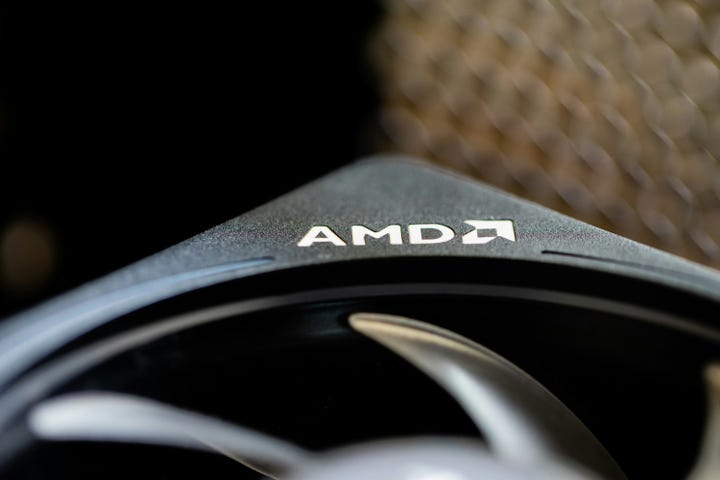Advanced Micro Devices Falls More Steeply Than Broader Market: What Investors Need to Know AMD, Dow, NASDAQ, Nasdaq, S&P 500, Benzinga, Advanced Micro Devices, Computer and Technology by https://www.benzinga.com/

AI Insights:
Simple Explanation:
So, this article is about a company called Advanced Micro Devices (AMD) that makes computer chips. The price of their shares went down more than other companies in the market recently. People who care about AMD's money and sales will be looking at their next report to see how they did. They think AMD might make $3.44 for each share sold this year, which is a lot more than last year. Read from source...
Critical Perspective:
- The author uses the term "lagged" to describe AMD's performance compared to the broader market, implying a negative connotation and suggesting that AMD is falling behind or underperforming. This is a biased and unfair representation of AMD's situation, as it does not consider the factors that may be driving AMD's share price fluctuations, such as market volatility, competition, innovation, customer demand, etc.
- The author cites analysts and investors as sources of authority and credibility for their claims about AMD's earnings expectations, without providing any evidence or reasoning to support their opinions. This is a logical fallacy known as an appeal to authority, which assumes that something is true because it is endorsed by someone who is perceived to be knowledgeable or authoritative, without considering the validity or reliability of their sources or methods.
- The author mentions the Computer and Technology sector and the S&P 500 as benchmarks for comparison, but does not explain how they are relevant or appropriate for evaluating AMD's performance or prospects. This is a hasty generalization, which assumes that something is true based on insufficient or inappropriate evidence, without considering the specific characteristics or context of the situation being analyzed.
- The author uses emotional language and phrases such as "losing", "down", and "keeping a close eye" to describe AMD's situation and outlook, which convey a sense of pessimism and uncertainty, rather than objectivity and rationality. This is an example of emotional reasoning, which involves making decisions or judgments based on feelings or intuition, rather than facts or logic.
- The author does not provide any evidence or data to support their claims about AMD's earnings or revenue projections, nor do they explain how they are derived or calculated. This is a lack of transparency and accountability, which undermines the credibility and reliability of the article.
Sentiment Analysis:
Negative
Summary:
The article discusses how Advanced Micro Devices (AMD) has fallen more steeply than the broader market and what investors need to know about it. It highlights AMD's recent performance and upcoming earnings disclosure, as well as analyst estimates for EPS and revenue. Overall, the article conveys a negative sentiment towards AMD's stock.